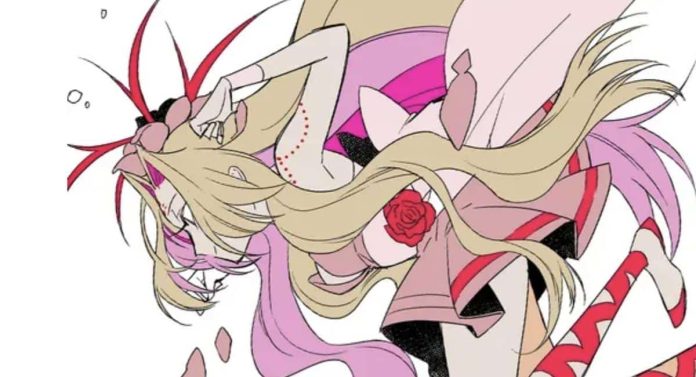Note: This is a sequel to the piece “The pretty and poisonous worlds of Webtoon creator Lee Yone.”
Lee Yone’s survival horror metafictional thriller Surviving Romance ended with a request to the reader: “Please check out Please Kill My Husband as well!” Please Kill My Husband was a collaboration between Yone, comics duo CANNT WORKS and Gamul. Yet while the series was produced by WEBTOON’s parent company Naver, you have to go looking for it on TappyToons to read it in English. WEBTOON’s famously strict (and inconsistent) content guidelines may have something to do with it. But it made me wonder: did Lee Yone have a career outside WEBTOON?
As a matter of fact, Lee Yone’s career did not begin in 2018 with The Makeup Remover. Her first comic, Strange Story of 11th Avenue, was published on the comics site Lezhin in 2013 under the pseudonym Gaje (crayfish.) Strange Story was a mystery horror serial influenced by the stories of Edgar Allen Poe. Not much other information about it is available in English. But in an interview with Webtoon Guide, Gaje happily discusses her influences: cult horror artist Daijiro Morohoshi, the gruesome comedy Franken Fran, and (of course) Junji Ito.
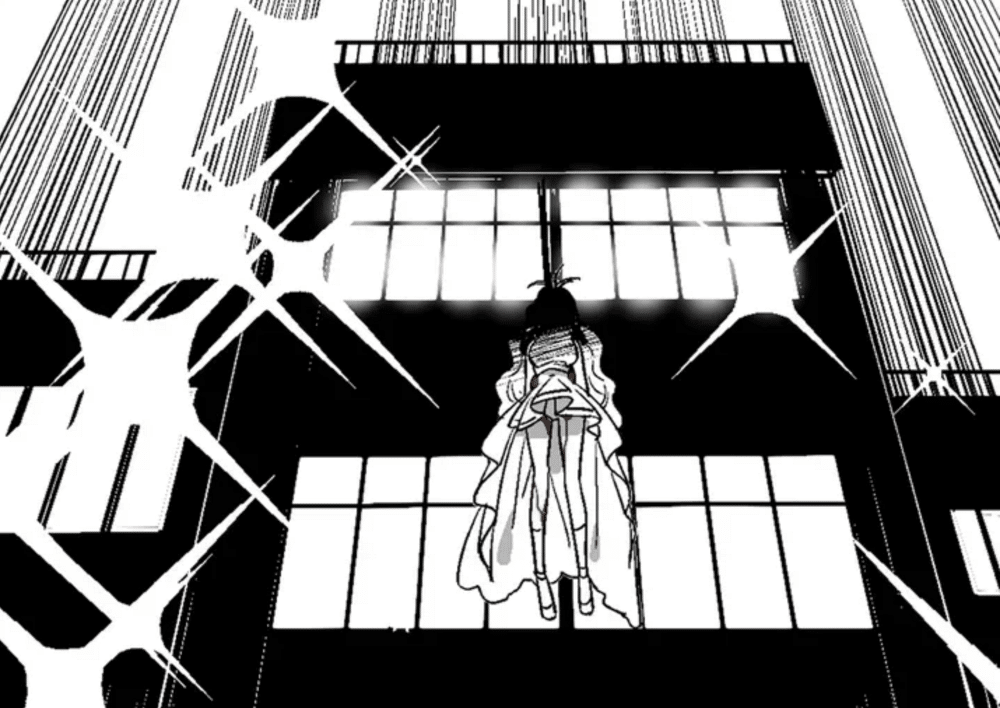
Sailor Moon from hell
The zombies in Surviving Romance weren’t an accident, nor the suspense scenes in The Makeup Remover, as Gaje has had roots in the horror genre from the very beginning. Her longest-running work at Lezhin, a collaboration with fellow artist stego, was no exception. Miss Guillotine was published from 2015 to 2017 and it asked the question, “what if Usagi Tsukino from Sailor Moon and her friends were bullies, and the girl whose sister they killed decided to take revenge by murdering them all?”
Bullying stories are a staple in South Korean pop culture and English language readers may be familiar with Netflix’s The Glory, a 2022 thriller about a teacher who takes revenge on her former bullies. However, plenty of Webtoons touch on the subject as well, whether as the central focus (Pyramid Game) or as a brief episode meant to add flavor (Odd Girl Out.)
Miss Guillotine takes the novel route of combining the bullying story with the visual signifiers of the magical girl genre as the girls in this series don colorful outfits straight out of the Precure franchise to defend humanity from monsters. They also happen to do terrible things to their classmates and to each other in their daily lives, some of them even going as far as relishing in the experience. One by one, they meet their end at the hands of the mysterious Miss Guillotine, whether by strangulation, drowning, or worse.
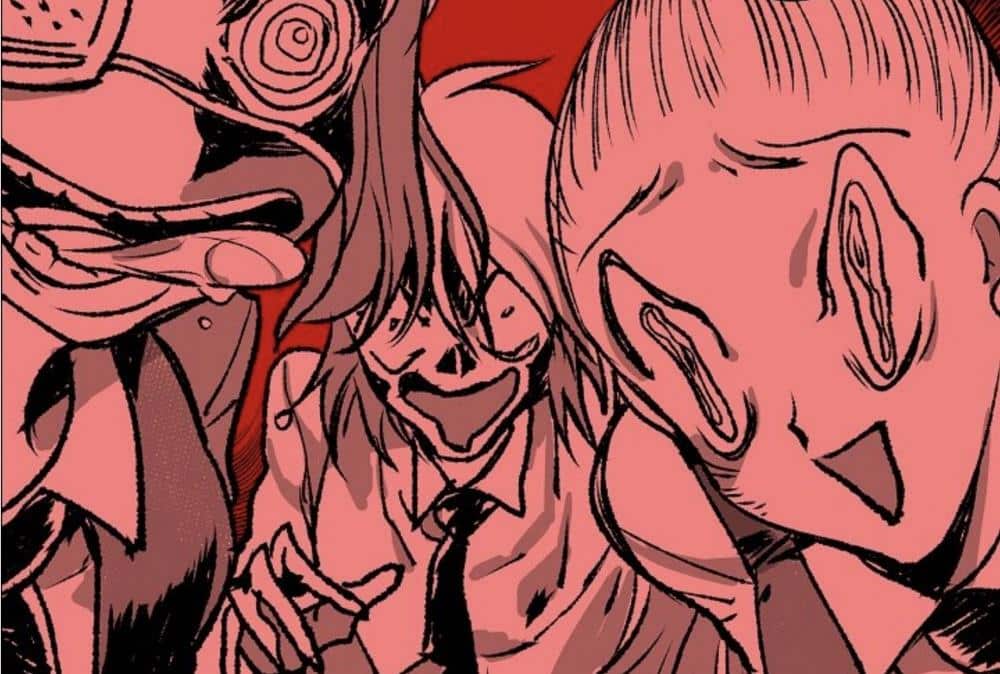
The monster of the week is people
Miss Guillotine leaves itself open to the same criticism that dogged the similarly grim Puella Magi Madoka Magica back in 2011: it takes a genre meant to empower young girls and drags it through the muck. stego’s character designs and sickeningly bright colors go even further in giving Miss Guillotine a distinct identity of its own, liberating it from direct comparison with other stories. Lezhin’s relaxed content standards also allow for horrifying scenes that would never be allowed on Webtoon and competing services. Even with the more extreme content, I wouldn’t say that Miss Guillotine is any more mature than The Makeup Remover or Surviving Romance, as its excesses are those of a young and ambitious artist rather than a fully formed storyteller.
There are also distinct differences regarding how Madoka Magica and Miss Guillotine approach the magical girl genre, with Madoka envisioning a system in which little girls are tortured to feed a hungry, uncaring machine. On the flip side, Miss Guillotine instead builds a world where the torture machine is comprised of other people: Magical girls hurt one another not because they are compelled to do so, but because they are young teenagers burdened by power and fame as the bullies of Miss Guillotine struggle with body dysmorphia, anxiety and unrequited love. All of the emotional, physical and psychological chaos results in them lashing out at their classmates when fighting monsters no longer works as a coping mechanism.
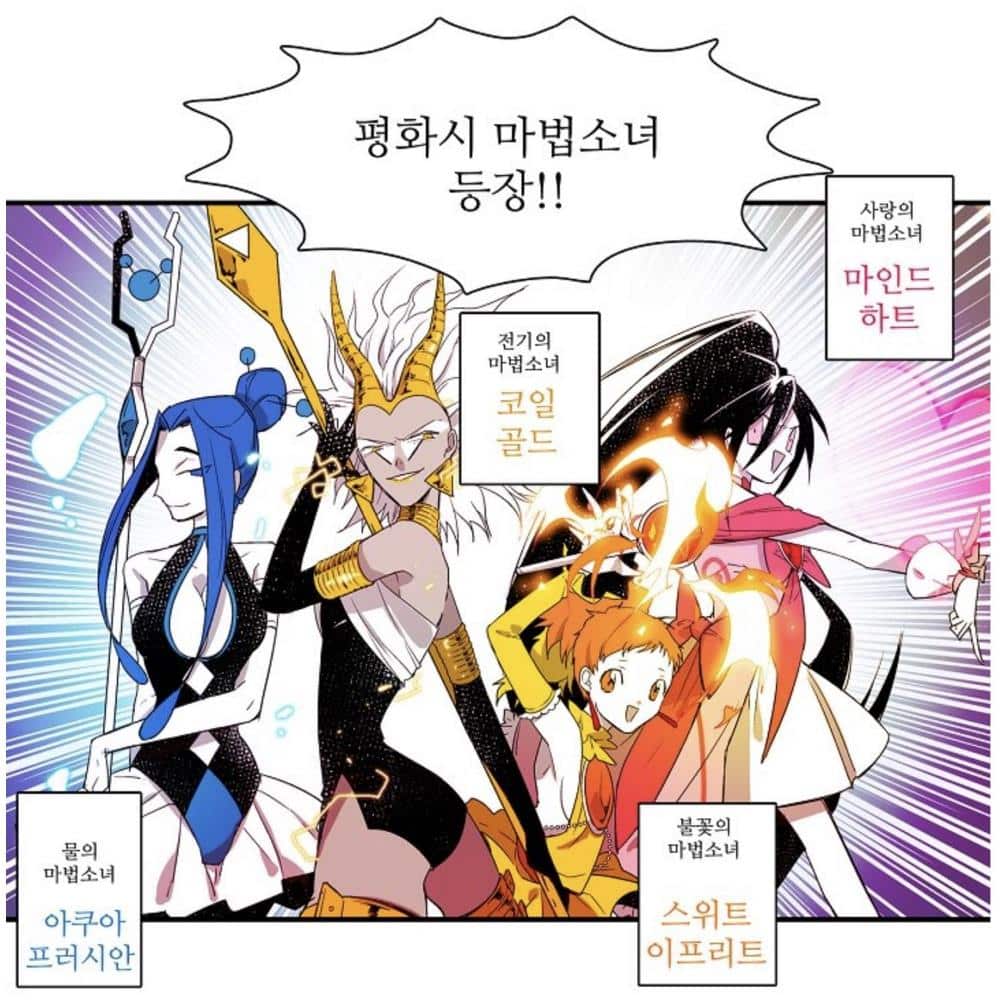
Stories with other motives
With a decade’s worth of hindsight, it’s fascinating to see just how much of Gaje’s output as WEBTOON artist Lee Yone began in Miss Guillotine. Like Surviving Romance, Miss Guillotine is preoccupied by genre subversion, the rules of stories and whether people are able to change their inherent nature. Meanwhile, Miss Guillotine asks questions about beauty standards, the cost of fame and collective punishment that would all come up once again in The Makeup Remover.
The one thing Miss Guillotine lacks is a male love interest, even a decoy like Yuseong or Jeha. That reaffirms Gaje’s commitment to telling stories centering women and their relationships and it reminds me of what director Kunihiko Ikuhara once said about his experience directing Sailor Moon. As quoted from an IRC chat interview made available by the fansite Empty Movement: “If I have a guy in the show, the love relationship gets to have a bigger role than the show…I think there could be more shows with other motives than that.”
Gaje is almost certainly an Ikuhara fan, if only because the finale of Miss Guillotine is a homage to his masterpiece Revolutionary Girl Utena. Though what marks her as a true heir isn’t limited to aesthetic signifiers, it’s that she tells stories about selfish people (particularly women) working together to escape oppressive systems. Miss Guillotine can be flippant about its magical girl aesthetics—and perhaps even underutilizes them throughout the story; Gaje takes the wants and fears of her characters seriously, even when that means following them to places the reader will find uncomfortable.

Goodbye Lezhin Comics
Gaje continued to write for Lezhin Comics after Miss Guillotine. Her next series, a suspense series called Vanishing Twin made in collaboration with the artist Dodal, premiered in 2016. Two years later, Gaje jumped ship to publish The Makeup Remover at WEBTOON under the name Lee Yone. As a result, Vanishing Twin is now available to read on Naver rather than Lezhin in Korea. Miss Guillotine is listed on multiple comics platforms in Korea, although the English version is no longer listed on Lezhin Comics.
What might have happened to cause this split? While I can’t say for sure, it may have something to do with Lezhin’s bad behavior through 2017. At this time, Lezhin canceled their web novel service with just two weeks of advance notice. On top of the service cancellation, they also charged their talent a “late penalty fee” if they submitted work over two days late, in addition to taking 70% of the profits. Grey, the author of the popular series Records of the Cold Moon, alleged (per The Magic Rain) that when she was diagnosed with thyroid cancer, her editor expected that she keep drawing and publishing comics.
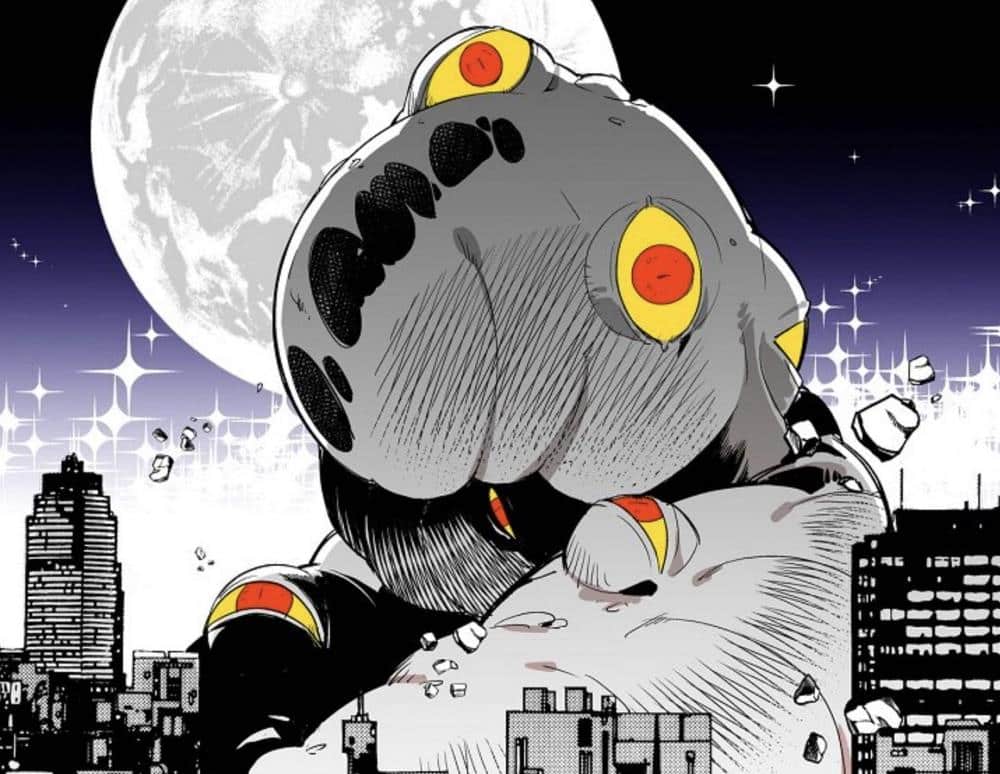
A blacklist of artists
The following year, on January 11th 2017, a hundred artists and readers protested outside Lezhin’s Seoul offices in the freezing cold. At this protest, says Korea JoongAng Daily, popular Lezhin artist Eun Song “accused the company of using a blacklist of artists it considers to be troublesome and limiting the promotion and exposure of their works.” Any artist at Lezhin could be erased for daring to criticize the company and its practices.
A few days later on January 16th, several Lezhin artists put their comics on hiatus in solidarity with the protestors. One of these comics was Sadistic Beauty, a series that Gaje previously recommended in an author comments episode of Miss Guillotine. I don’t know if this was the trigger that led her to abandon Lezhin for Naver. But I do know that at this time many artists and writers in the Korean comics industry no longer trusted Lezhin, if they ever did.
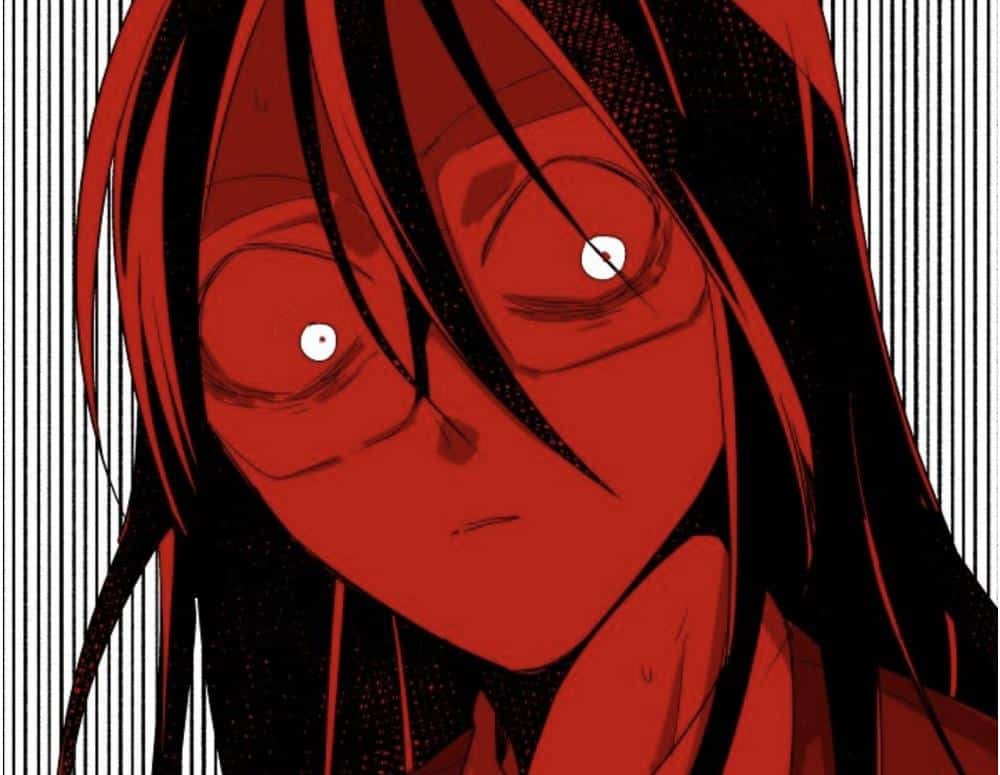
Punishment girl
Lezhin’s management made a public apology, according to OhmyNews, on July 12th of 2018. But the corporations that run Korean comics keep trying the same tricks in the hope that they will eventually escape consequences. In 2021, says Korea JoongAng Daily, the CEOs of both Kakao Entertainment and Naver testified in front of the National Assembly as to whether they required their talent to sign exploitative contracts. As recently as this April, Comics Beat reported that Line WEBTOON was in hot water once again for demanding the same of artists under its Originals umbrella. (A WEBTOON spokesperson denied the allegations.)
The Korean and English language Webtoon industries share a history. Companies like Naver, Kakao Entertainment and Lezhin only benefit by keeping these worlds separate. In reality, readers should recognize that the writers, artists and assistants who make Webtoons are more than the specific platforms on which they publish their work, they are also independent personalities with their own ambitions and deserve to be considered as such. I will always be thankful to Lee Yone’s work for teaching me this lesson.

